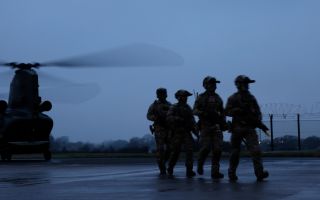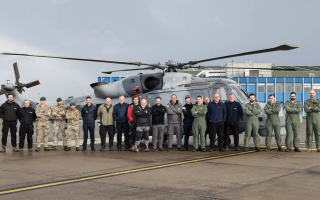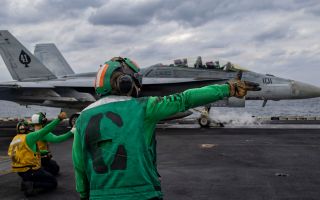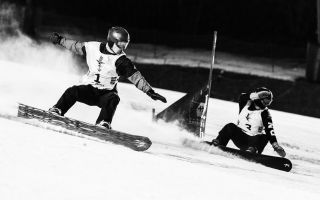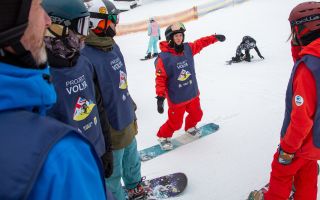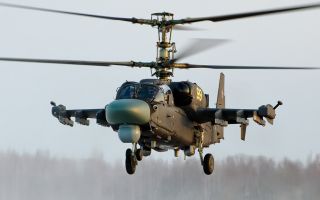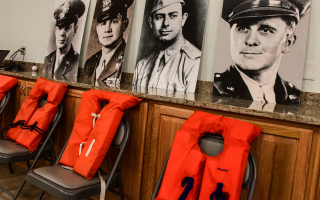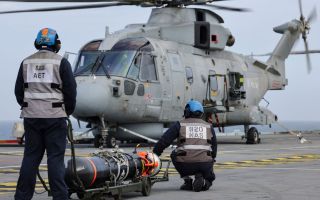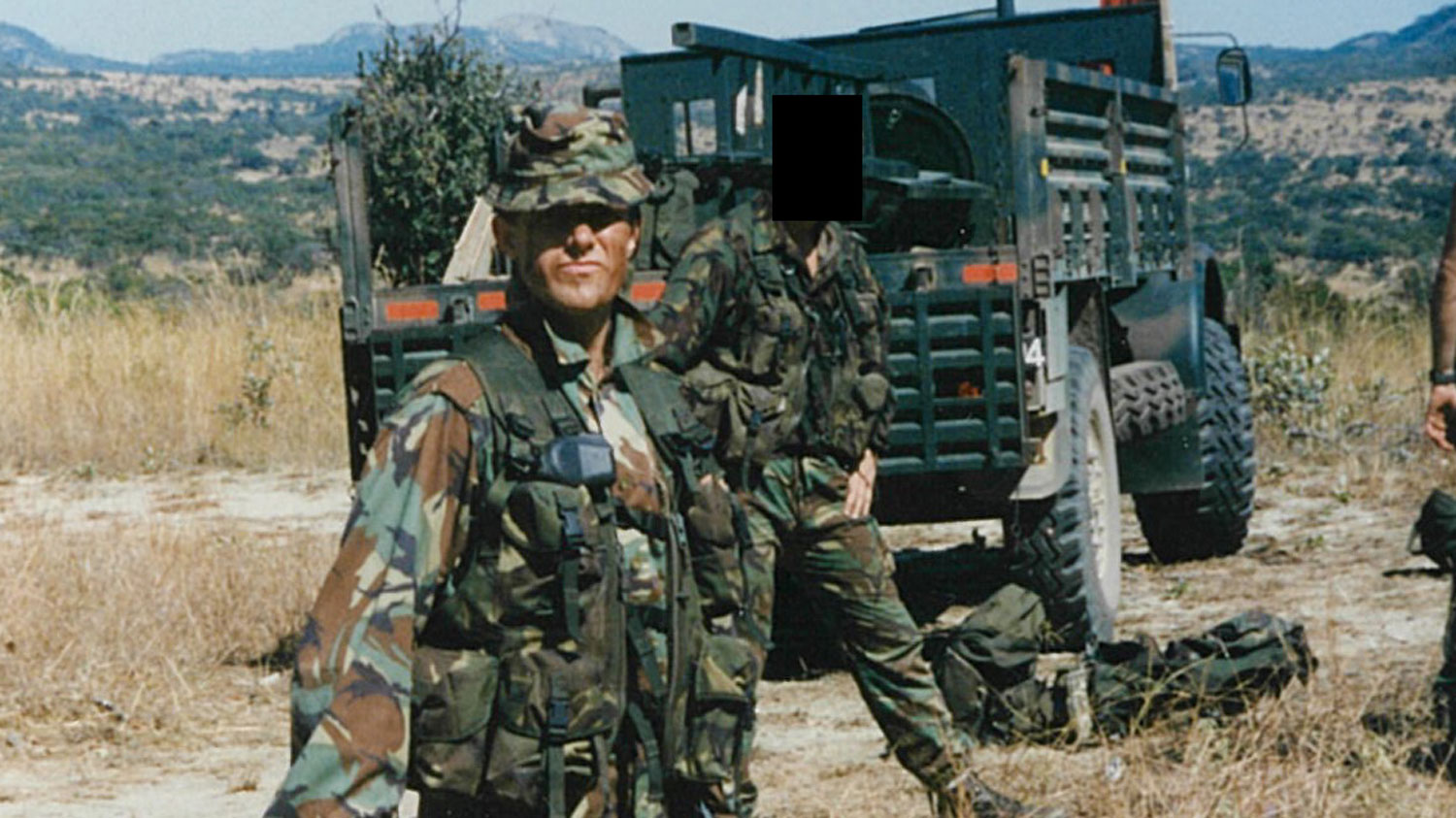
Kamikaze Des, unshakeable 2IC of legendary Bravo Three Zero patrol during Gulf War

For veteran turned author Des Powell, his nickname "Kamikaze Des", is not just a name, it's a testament to his time as a seasoned veteran of the Special Air Service (SAS).
After 28 years of service with the Parachute Regiment and the SAS, working in Northern Ireland, Europe, South America, Africa and the Middle East, Mr Powell transitioned into the literary world in 2021 with the release of Sunday Times bestseller Bravo Three Zero.
His latest book, SAS My Trial By Fire, has been described by author and historian Damien Lewis (with whom Powell co- wrote his first book) as "Explosive. Gripping. Revelatory" and he goes on to say that the book helps readers "experience the blood and guts trial of SAS selection at firsthand".
Speaking with BFBS the Forces Station, Mr Powell said his childhood was filled with love and direction from his parents and that, contrary to the rough reputation of his hometown Sheffield, he experienced a nurturing environment that kept him grounded.
However, as a young man, the idea of joining the military wasn't initially appealing.
He said: "People kept saying, you'd be good in the Armed Forces and I kept saying, 'no, I'm not going to have anybody shout at me and start telling me what to do'.
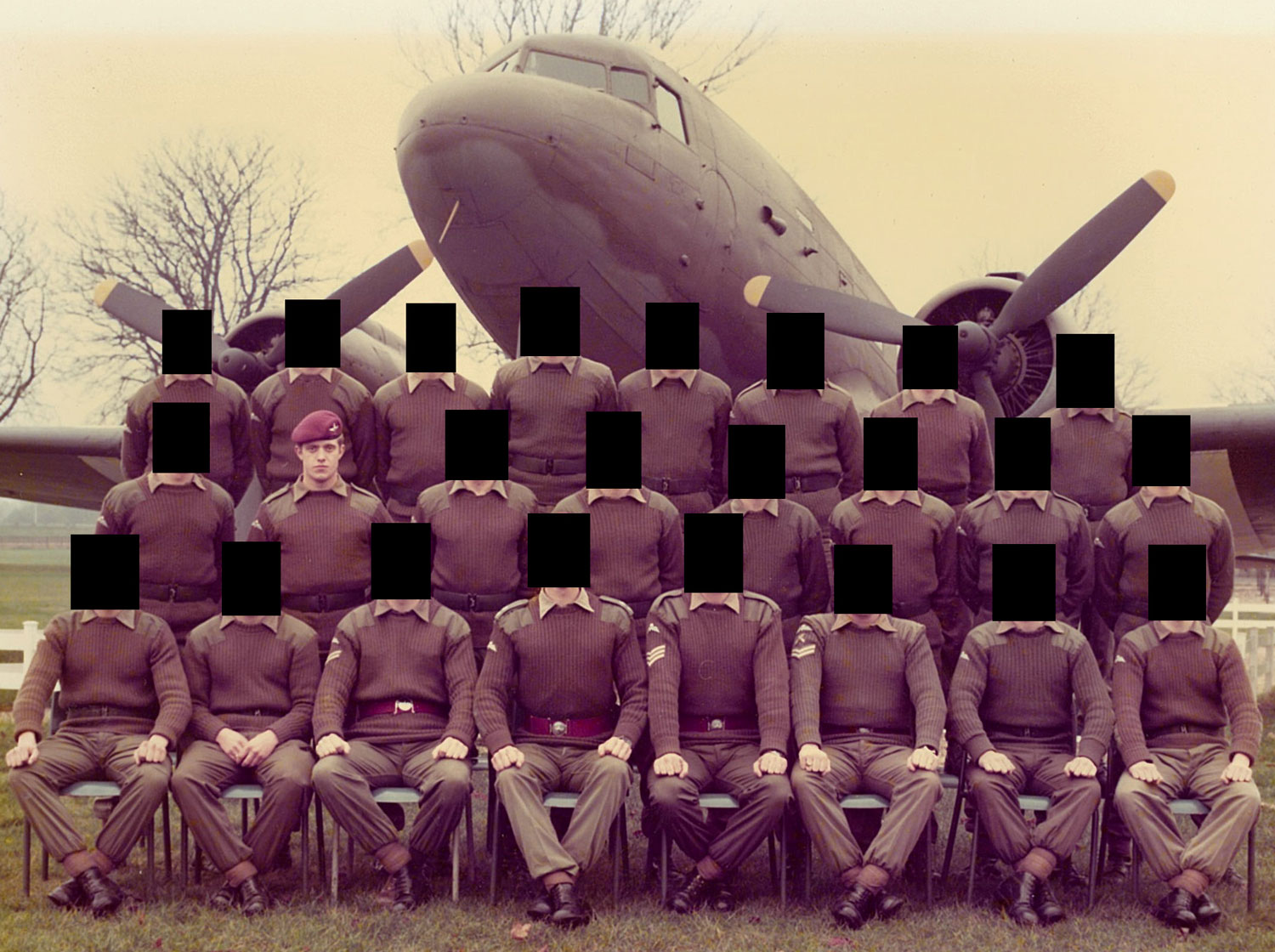
"But I plucked up the courage to go to the Army careers office and the Army careers guy said, 'You'd be good in the PARAs'.
"And I said, 'Hold on a minute, do those guys jump out of planes?' and he said, 'By the time you've done your training, which will be six months, you'll be more than ready for jumping out of aeroplanes'."
However, at age 19, he decided to take the advice and joined the Armed Forces in May 1977.
His journey began in the Parachute Regiment, where he quickly learned the ropes of military life, including a significant amount of parachuting.
Mr Powell eventually joined Air Troop in the SAS, specialising in high altitude, low opening (HALO) parachuting.
As to the source of his nickname, he said: "One of the guys gave me the nickname of Kamikaze Des.
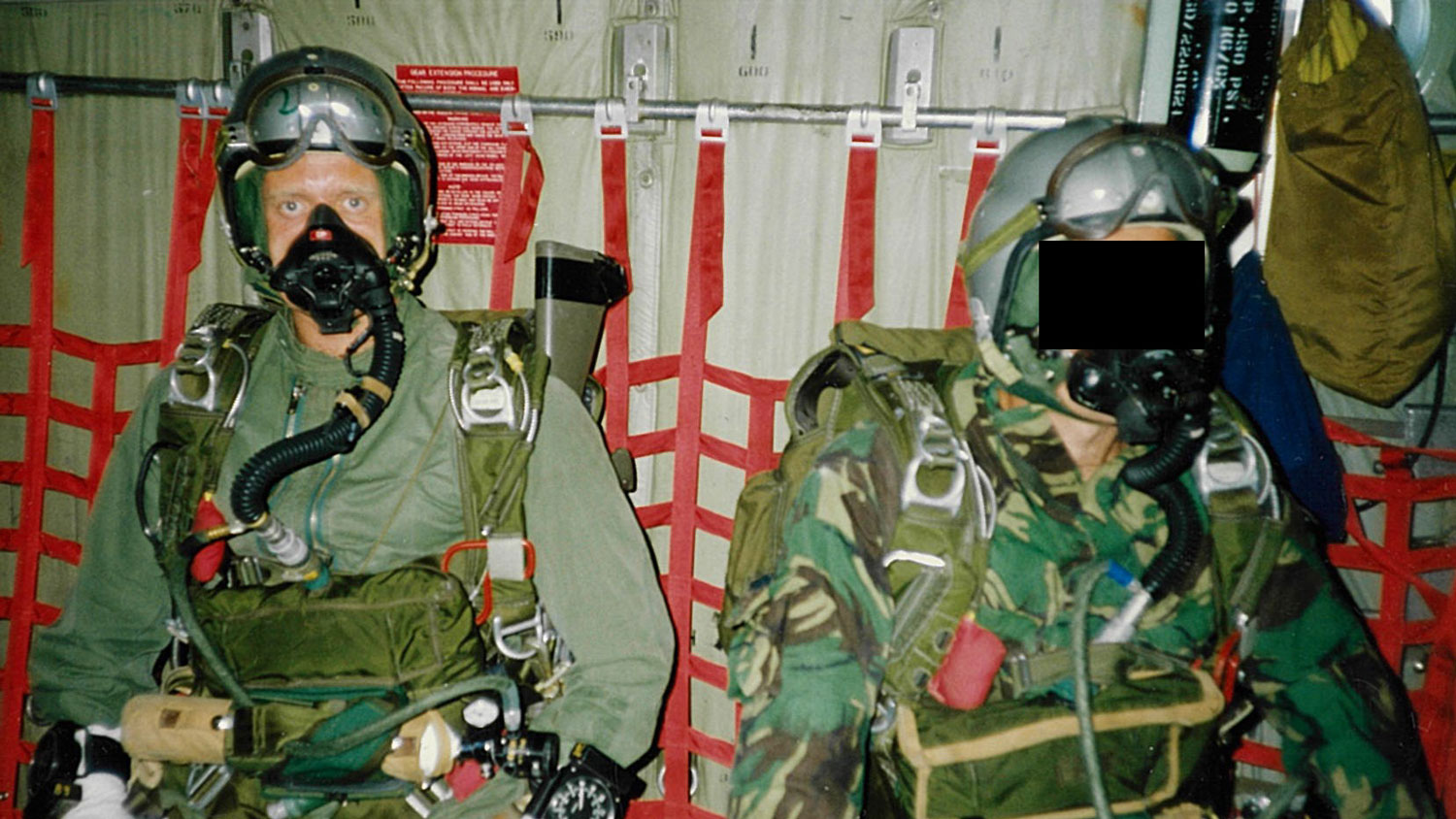
"When you have a malfunction, your parachute is supposed to deploy, but on three occasions it [didn't and] I had to get rid of it and go on to my reserve.
"Luckily, I'm here to talk about it."
While the risks of parachuting are well known, Mr Powell spoke about the broader misconceptions surrounding the sport, saying: "Parachuting is one of the most dangerous sports, but you very rarely hear of any fatalities.
"It's generally on landing you tend to get guys that have twisted ankles or broken legs, and malfunctions are generally rare as well, so I must be in the top echelon of people that have malfunctions."
Transitioning from the brash and bold PARAs to the more stealthy SAS, Mr Powell highlights a fascinating contrast.
He said: "If you need a job doing right, the PARAs have that reputation but going to Hereford [the home of 22nd Special Air Service Regiment], they want all that strength, that power, that moving forwardness if you like, but they need a grey man.
"They need someone that has control. They need someone that is going to think about things. They need someone that can control his feelings."
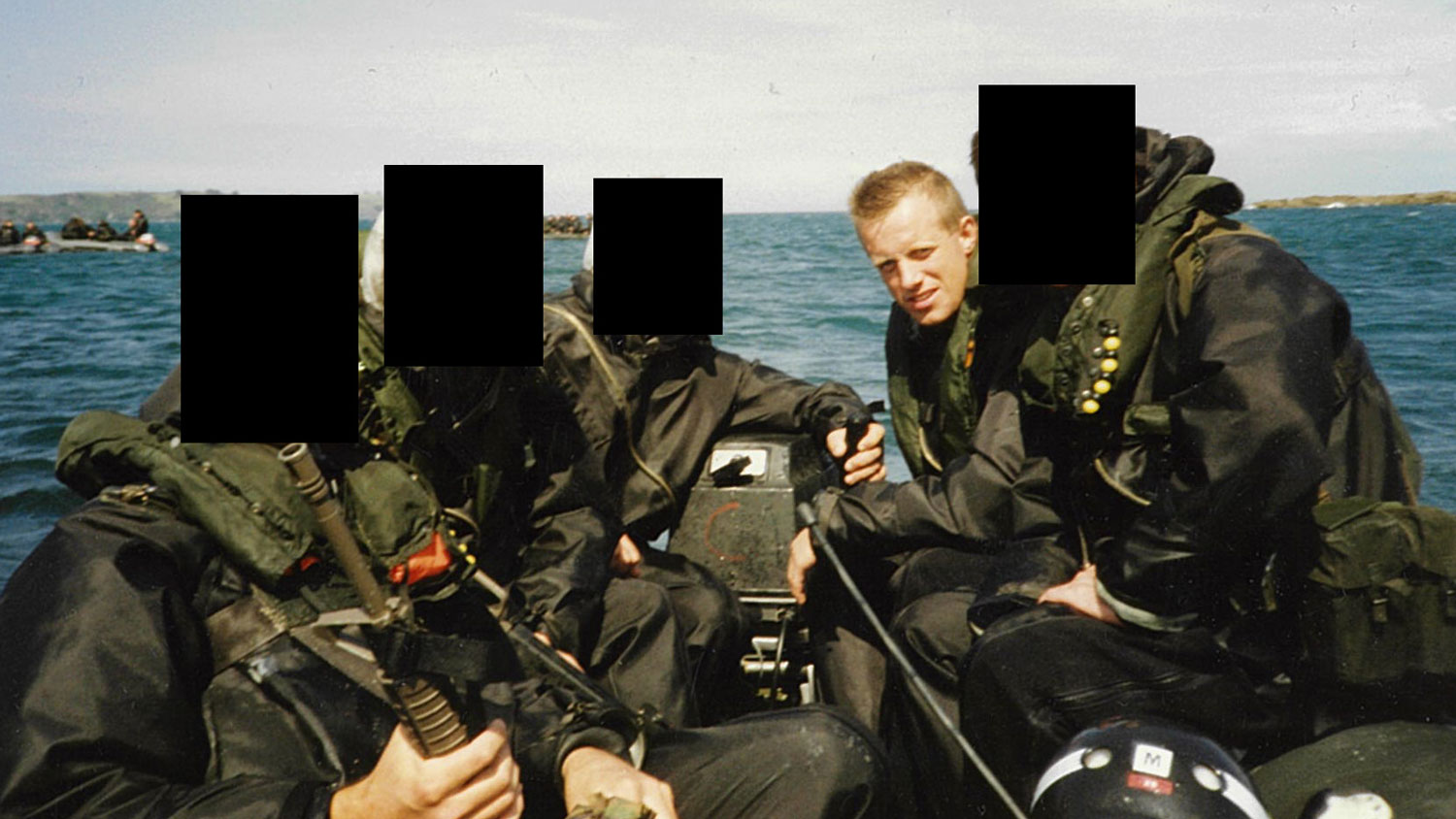
During his time in the jungle, Mr Powell ate what he describes as his "fair share of unusual grub" and had the pleasure of interacting with Ibans, an indigenous population in Brunei.
He said: "If they catch anything, they've got to smoke the meat so it doesn't go off.
"So I've had smoked snake, smoked squirrels, smoked monkey.
"And everything is smoked, so it tends to taste the same."
How do you cook a snake, then?
"With difficulty," Mr Powell cheekily explains, adding: "It's a case of skinning it, getting the meat from it and then what you do, you put it over fire, you cook it by heat and then there's a smoking process you use."
Des's anecdotes about life in the SAS provide a glimpse into a world often romanticised in popular culture.
He compares the public's expectations of an SAS operative – tall, muscular and intimidating – with his reality as a 5ft 8in Yorkshireman, proving that true strength comes in many forms.
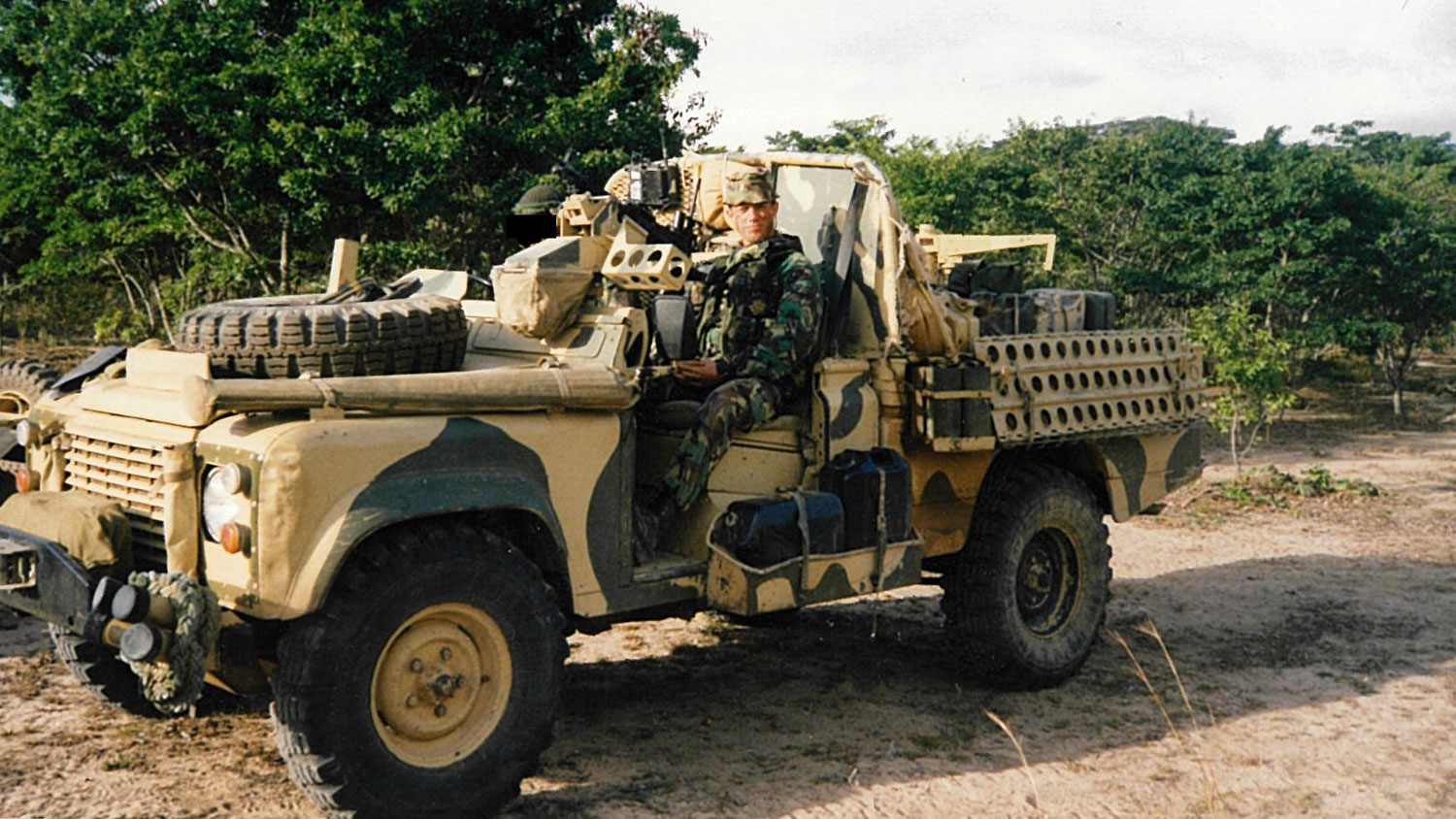
His military banter shining though, he said: "People expect a superhero, but when they meet me, they see someone who looks like he can hardly lift a can of beans."
Through his writing, Mr Powell aims to demystify the SAS experience, offering readers a genuine look at the life of a soldier who has faced immense challenges and emerged stronger.
SAS: My Trial by Fire: True Stories and Life Lessons from SAS Selection by Des Powell and published by Quercus is out in hardback now.

